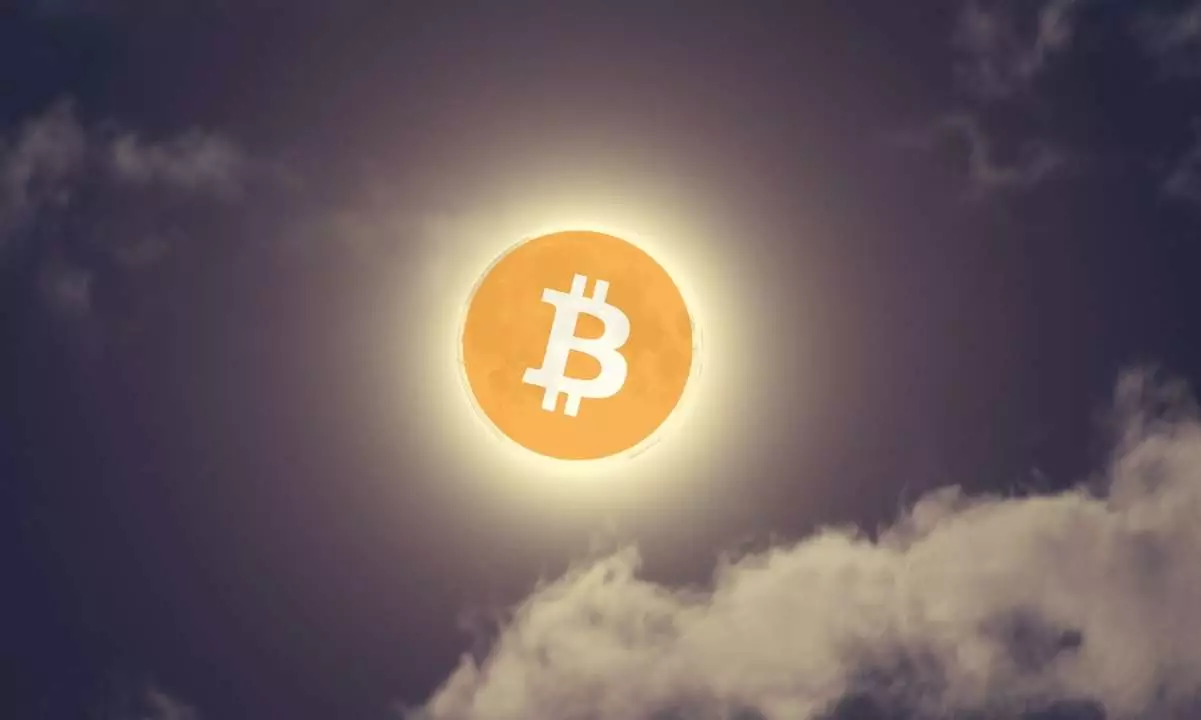The cost of buying Bitcoin (BTC) has been skyrocketing, and it’s not just the price of the cryptocurrency itself that is reaching record highs. The cost of moving Bitcoin is also hitting new all-time highs. On-chain data reveals that the price for Bitcoin block space has surged to unprecedented levels in BTC terms, largely due to the overwhelming demand created by Ordinals transactions.
Founder of Bitcoin for Fairness, Anita Posch, drew attention to the record cost, showcasing that transactions reached a staggering 350 satoshis per vByte (sat/vB) on Thursday. Sat/vB is a measure of block weight and transactions, with each vByte being equivalent to four weight units. However, a standard SegWit-based transaction weighs only 1 weight unit, leaving Bitcoin blocks with the capacity to store 4 million weight units of witness data.
Unfortunately, this surge in demand has led to significant congestion in Bitcoin’s mempool, where unconfirmed transactions are stored. Mempool data indicates that the weight of Bitcoin’s mempool hit an all-time high of 390 vMegabytes (vMB) on Tuesday. As a consequence, BTC settlement times have become much slower, and transactions have become more expensive. This has effectively killed the potential for smaller on-chain payments, prompting Posch to halt onboarding users to on-chain transactions in countries like Ghana and South Africa due to the exorbitant fees.
The spike in Bitcoin fees can be attributed to Ordinals transactions. Ordinals is a protocol for issuing non-fungible tokens (NFTs) and other tokens on the Bitcoin blockchain. Unlike other blockchains, Bitcoin NFTs store the image data for their tokens directly on-chain, resulting in larger and costlier transactions.
Dune Analytics reported that Ordinals fees paid by users amounted to $1.9 million on Tuesday and an additional $854,000 on Wednesday. Collectively, these transactions have accumulated an astonishing $148.4 million in fees to date. This surge in activity has raised concerns among some Bitcoiners, including Bitcoin Core developer Luke Dashjr, who considers Ordinals transactions to be a form of network spam.
To address this issue, Dashjr launched OCEAN, a Bitcoin mining pool that filters out Ordinals transactions. This enables miners to focus on processing real transactions and contribute towards blocks that prioritize legitimate transactions.
Bitcoin is not the only cryptocurrency facing high transaction costs. Ethereum, the second-largest cryptocurrency, has also witnessed a significant increase in gas fees. Gas fees nearly doubled following the introduction of Buterin Cards NFTs, reaching their highest level since May of this year.
Interestingly, Ordinals allowed Bitcoin transaction fees to rival those of Ethereum last month. Between November 18 and November 25, Ordinals transactions generated approximately $52.6 million in fees, compared to Ethereum’s $61.5 million. This suggests that Bitcoin is increasingly becoming an attractive platform for NFTs and token issuance.
The rising transaction fees have had a substantial impact on Bitcoin miners. According to HashRate Index, between 25% and 30% of rewards received by Bitcoin mining pools in recent days have come solely from transaction fees, rather than the miners’ standard 6.25 BTC block subsidy. However, the upcoming Bitcoin “halving” in April will cut this subsidy in half.
The escalating cost of Bitcoin transactions poses a significant burden for users. The surge in demand driven by Ordinals transactions has resulted in major congestion within the Bitcoin network, leading to slower settlement times and more expensive transactions. Similar issues are also arising in the Ethereum network. As the cryptocurrency ecosystem evolves, solutions must be found to address the rising fees and ensure the seamless and cost-effective movement of digital assets. Otherwise, the feasibility of on-chain payments and the broader adoption of cryptocurrencies may be hindered.

